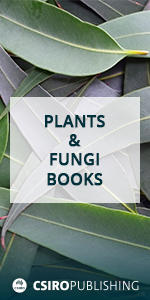Physiological and biochemical changes in wheat during cold acclimation and vernalisation are pivotal for winter survival. We examined methyl-jasmonate (MeJA) and cold treatment effects on miRNA regulation and target genes in Baz spring wheat and Norstar winter wheat. MeJA’s impact on vernalisation and acclimation varied between cultivars, with Norstar experiencing decreased traits and Baz showing minimal effects. Results underscored the intricate interplay between genotypes, miRNAs and target genes under different vernalisation treatments, elucidating the response of wheat to MeJA and cold treatments.

Functional Plant Biology
Volume 52 Number 4 2025
NF-Y is a key transcription factor found in plants, animals, and fungi, with higher plants having more NF-Y subunits. It consists of three parts (NF-YA, NF-YB, and NF-YC) that work together to regulate gene activity by binding to DNA or interacting with other proteins. NF-Y plays a vital role in plant growth and development. Understanding its structure and function can help improve crops and support sustainable agriculture.
This article belongs to the collection: Functional Genomics for Developing Climate Resilient Crops-Volume II.
The macadamia (Macadamia spp.) is an Australian native, and its nuts are a delicious source of nutrition with many health benefits. Extreme weather over the last decade has hampered the industry through yield losses and inferior quality kernels. Changes in environmentally sustainable orchard management practices are proposed to improve tree resilience and the production of first grade kernels.
FP24218 Abstract | FP24218 Full Text | FP24218PDF (1.2 MB) Open Access Article





